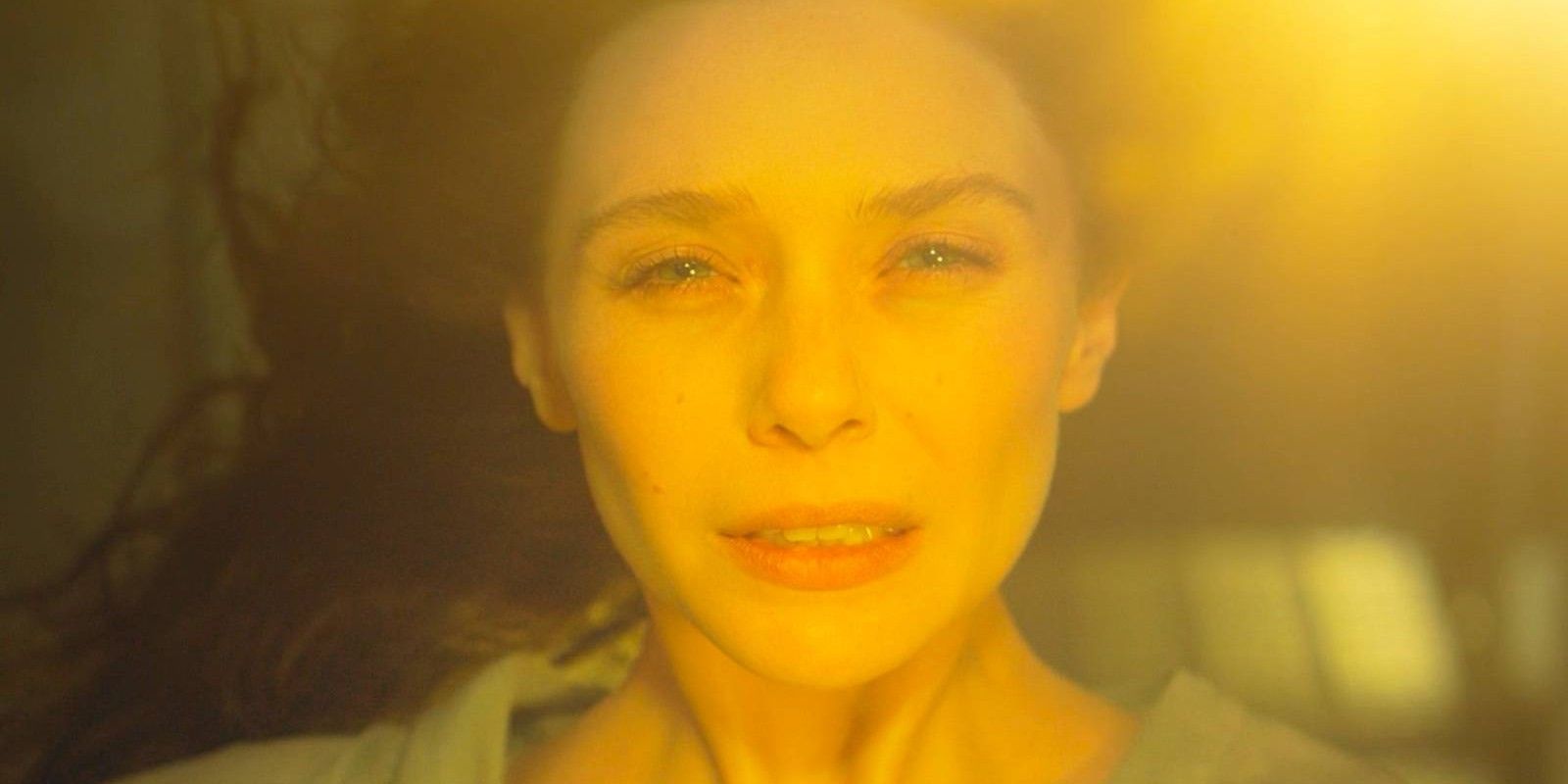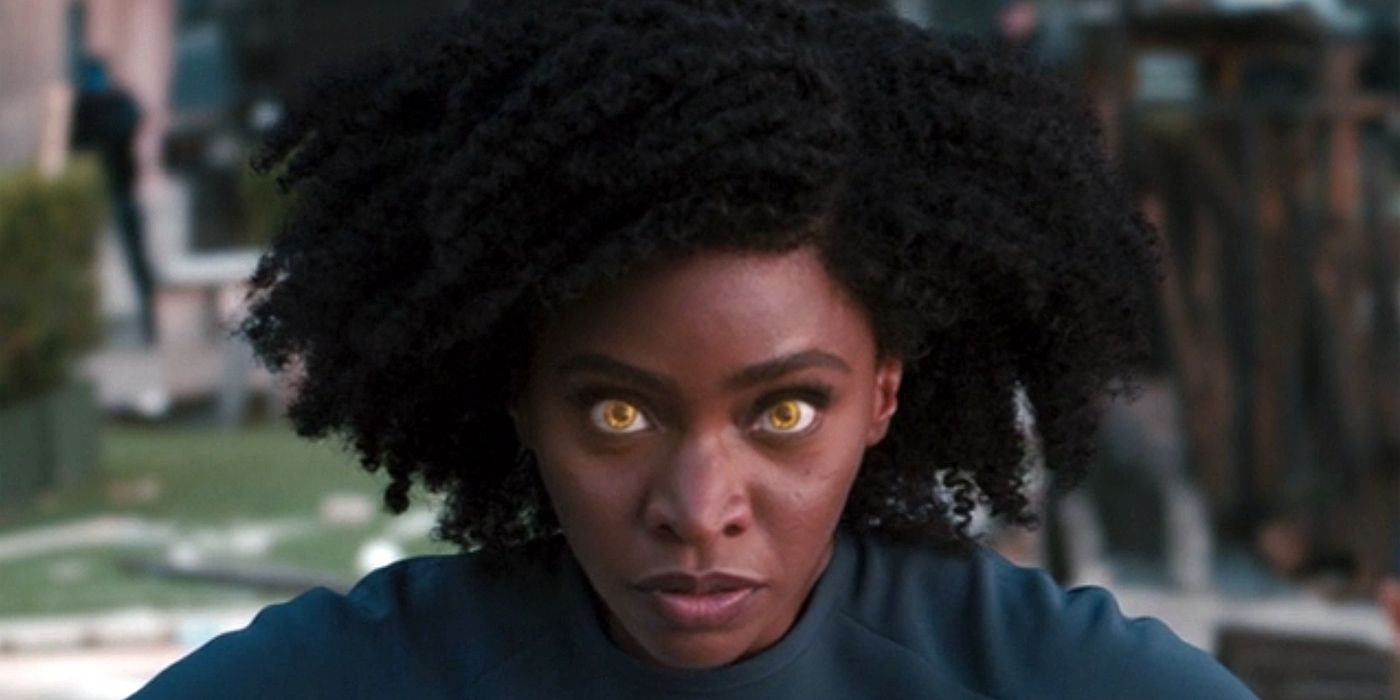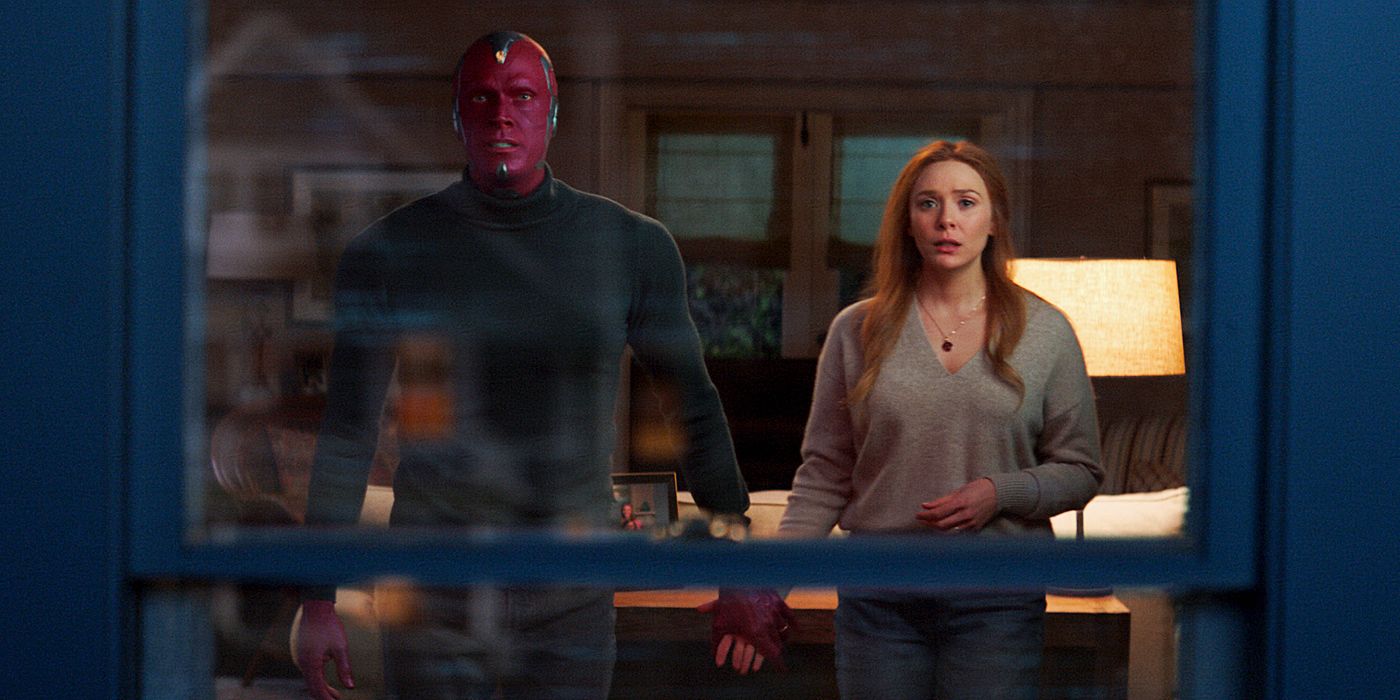WARNING: The following contains spoilers for WandaVision Episode 9, "The Series Finale," now streaming on Disney+.
Thanks to WandaVision, Phase Four of the Marvel Cinematic Universe is now underway. The show was originally slated to be Marvel Studios' second Disney+ series after The Falcon and the Winter Soldier, but the ongoing coronavirus pandemic forced the studio to switch the order while delaying both projects to 2021. In a way, however, WandaVision ended up being the perfect show to begin Phase Four, taking the MCU in an intriguing new direction while still leaving room for the franchise to continue growing and improving.
One of the best things about WandaVision was the way it used the medium of television to deviate from the storytelling formula of the MCU's movies, delivering a unique experience that could only work when dolled out through episodes released on a weekly basis. It also tapped into the full potential of the romance between the MCU's Wanda Maximoff and Vision, giving their love story the spotlight for the first time while simultaneously centering Wanda's grief in a way that wasn't possible in her earlier film appearances. For all the Marvel Comics Easter eggs, mysteries and sitcom homages the series managed to include, WandaVision was always a character-driven story about Wanda at its core.
Even when WandaVision shifted its attention away from life inside the Westview sitcom reality, it delivered a compelling introduction to the now-adult Monica Rambeau while allowing Jimmy Woo and Darcy Lewis -- both of whom were bit players in previous MCU films -- to shine in a way they hadn't been able to in the past. If anything, these characters were so engaging it became a problem when they had less to do in the series' finale, save for stopping S.W.O.R.D.'s Acting Director Tyler Hayward from escaping justice for his crimes. This was particularly an issue with Monica, whose storyline paralleled Wanda's and dealt with similar issues related to trauma and the challenges of coming back from emotional loss. In spite of this, WandaVision's final episode arguably struggled to give Monica's arc an emotionally satisfying payoff in favor of highlighting her super-powers instead.
WandaVision had similar problems when it came to splitting its focus between Wanda and Vision's life in Westview and everything happening with S.W.O.R.D. beyond the perimeters of the sitcom reality. While there were times the S.W.O.R.D. scenes enhanced viewers' understanding of what was going on with Wanda, as a whole the subplot involving Hayward's secret (and illegal) creation of White Vision didn't strongly tie in thematically to the rest of the show. The idea that Hayward is using Wanda for his own purposes is sound on paper but fell short in execution, to the point where it felt like Vision's existential showdown with White Vision in the series' finale was more about setting up future events in the MCU than the story at hand.
The same could be said for the way WandaVision wrapped up Wanda's arc by only briefly acknowledging the suffering she had unintentionally inflicted on Westview's residents before quickly moving on, rather than fully reckoning with the consequences of her actions first. There's a sense the episode would've done more with this plot point, had it spent a little less time on the magical battle between Wanda and Agatha Harkness, coupled with the fight between Vision and White Vision. To its credit, Wanda's throw-down with Agatha does allow her to better take control of her Scarlet Witch abilities, which is relevant to her growth as a character. Even so, the idea Wanda has been hurting others through her pain without realizing it is more central to what WandaVision is about.
All of these flaws stem from WandaVision prioritizing world-building to set up future MCU movies over telling a better standalone story. At the same time, the show came closer to striking a balance between these two things than many MCU projects in the past. Nor were there any extraneous subplots that only existed to lay the groundwork for upcoming films; even the flimsier ones were connected to what was happening immediately on WandaVision. And for the most part, the show's characters arcs, including the ones that needed more room to breathe, made sense for what the series is about. So long as Phase Four continues to refine its approach to blending character-driven storytelling with the necessary setup for what's to come next, the MCU should only raise its bar for quality from here.
Written by Jac Schaeffer and directed by Matt Shakman, WandaVision stars Elizabeth Olsen as Wanda Maximoff/Scarlet Witch, Paul Bettany as Vision, Randall Park as Agent Jimmy Woo, Kat Dennings as Darcy Lewis, Teyonah Parris as Monica Rambeau and Kathryn Hahn as Agnes. The series is available to stream on Disney+.



